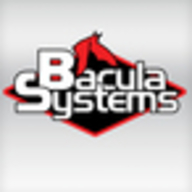

Bacula Enterprise and NetApp AltaVault compete in the enterprise data management solutions category. Bacula Enterprise often has the upper hand in affordability and comprehensive features, while NetApp AltaVault is superior in cloud-centric capabilities and performance.
Features: Bacula Enterprise offers flexible backup configurations, efficient multi-platform support, and high reliability. NetApp AltaVault provides seamless cloud integration, data deduplication, and encryption capabilities.
Room for Improvement: Bacula Enterprise needs a simpler setup process, improved central management tools, and enhanced user-friendliness. NetApp AltaVault could benefit from better reporting capabilities, more intuitive configuration options, and improved user functionality.
Ease of Deployment and Customer Service: Bacula Enterprise's deployment gets positive feedback but requires a learning curve. Customer support is responsive and helpful. NetApp AltaVault has a straightforward deployment and excellent customer service.
Pricing and ROI: Bacula Enterprise is cost-effective with low setup costs and scalable pricing models, providing significant ROI. NetApp AltaVault, though more expensive, delivers good ROI through advanced features suitable for enterprise needs.


Bacula Enterprise is a highly scalable, especially robust and secure data backup and recovery software. Its unique low cost subscription model empowers data centers to truly escape data volume price traps. With a high degree of flexibility and customizability, Bacula offers native integration with a wide range of hypervisors, databases, file systems, cloud interfaces and containers. High numbers of enterprise organizations worldwide (incl. NASA, Bank of Austria, Swisscom or Sky PLC) have adopted Bacula Enterprise backup software in mission critical environments because of its advanced features and ability to handle high data volume at very low cost.
NetApp AltaVault is a cloud-integrated storage solution created to increase recovery capabilities and lower cost and risks. It is better than traditional backup and recovery solutions because they are considerably slower, more expensive, risky, and can be too complex for the comprehension of many users. NetApp AltaVault solves issues related to backup, archival, and restoration. Compared to on-premises solutions, this software claims to be up to 90% less expensive while solving multiple issues related to data storage in the cloud. AltaVault presents three solutions to its customers: backup and recovery, cold storage and archives, and disaster recovery.
1. NetApp’s backup and recovery solution works with Kerne-Based Virtual Machine, Microsoft Hyper-V, and VMware vSphere, creating a solution for mid-sized businesses as well as for bigger companies that want to protect their offices in different locations. The usable local cache capacities of this solution range from 32TB to 383TB, providing clients with enough storage for their important data while giving them the option to retrieve it if something goes amiss.
2. NetApp AltaVault can be configured in cold storage mode and used for data that is not often used. The solution is scalable, thus allowing minimal costs for operating with cold data and allowing fast access to it at the same time.
3. AltaVault offers disaster recovery for Amazon Web Services (AWS) and Microsoft Azure. Your data will be secured on the cloud, providing you with a secure backup if the need for disaster recovery arises.
NetApp AltaVault’s many valued features include:
The benefits of using NetApp AltaVault include:
A Pre-sales Manager at a computer software company says NetApp AltaVault has fair pricing with a good GUI and a straightforward setup.
We monitor all Cloud Backup reviews to prevent fraudulent reviews and keep review quality high. We do not post reviews by company employees or direct competitors. We validate each review for authenticity via cross-reference with LinkedIn, and personal follow-up with the reviewer when necessary.